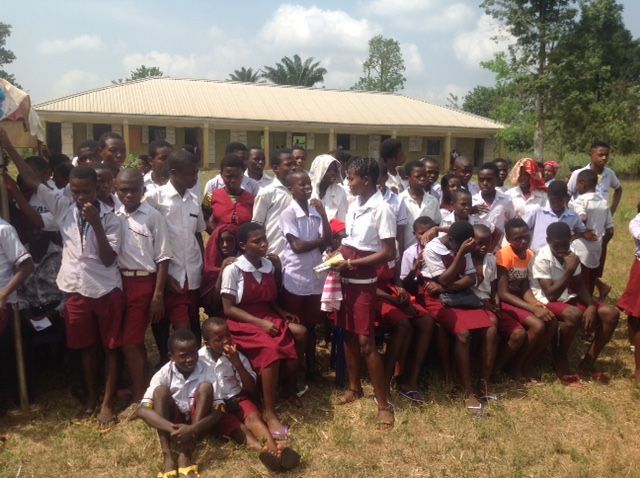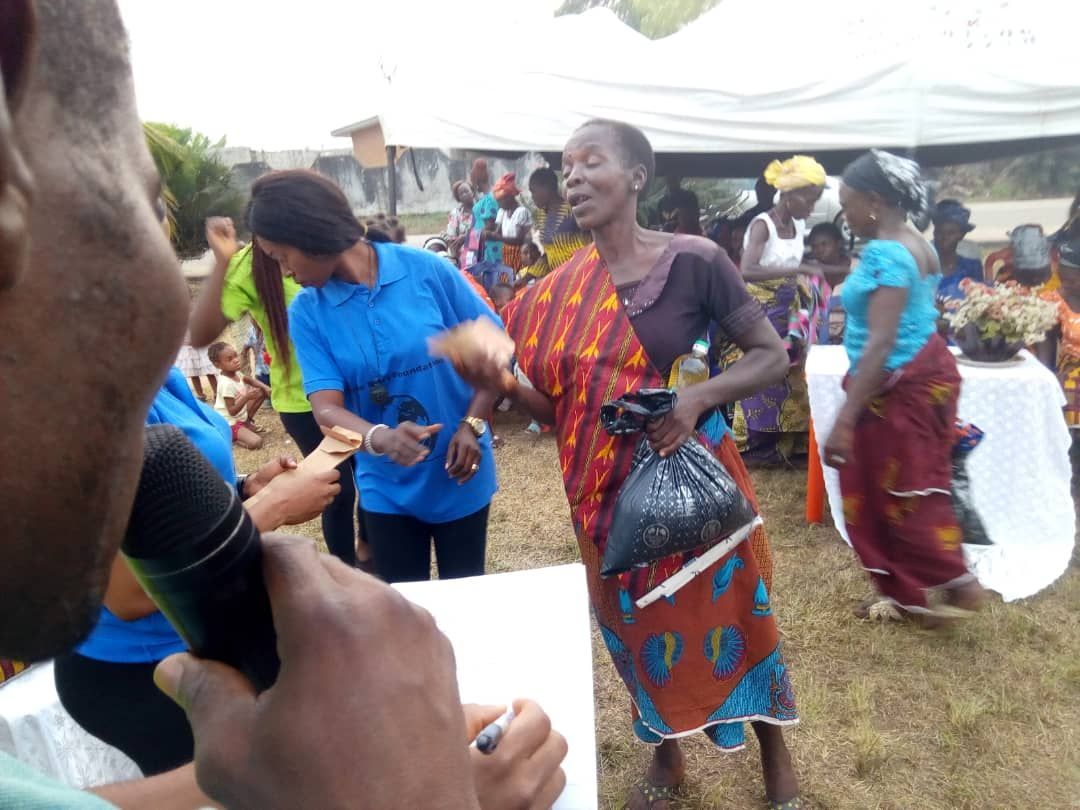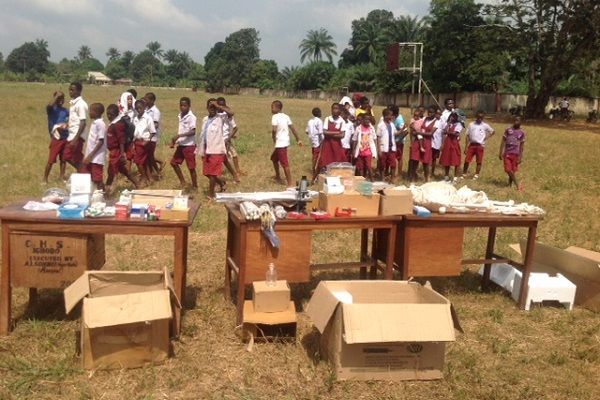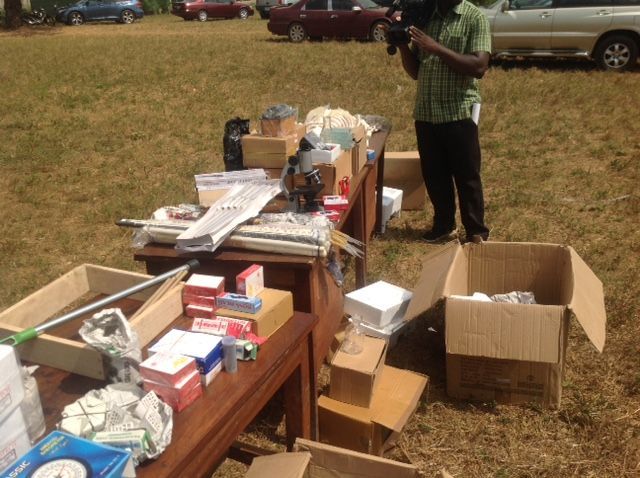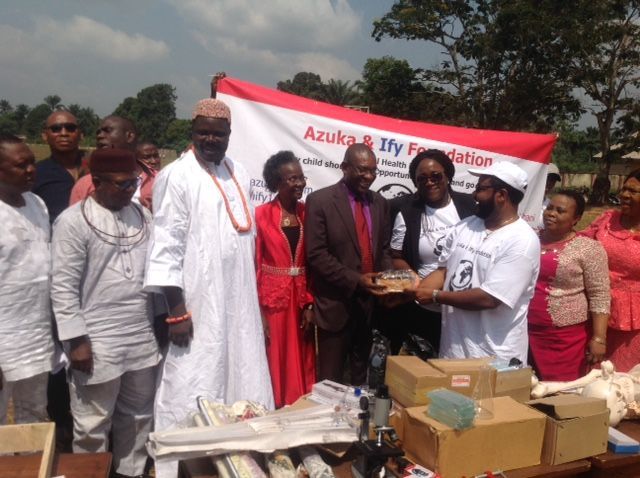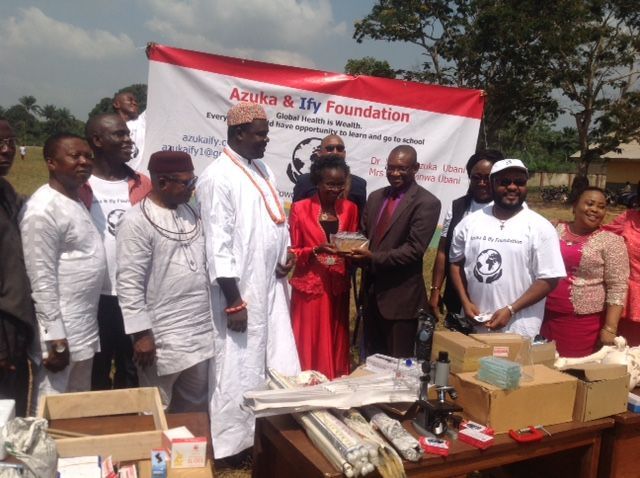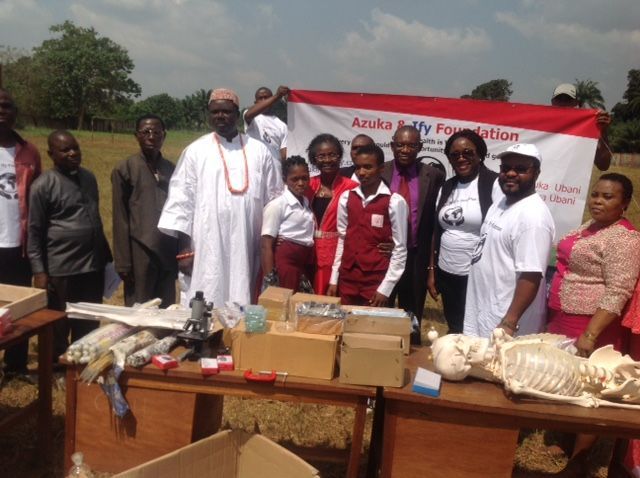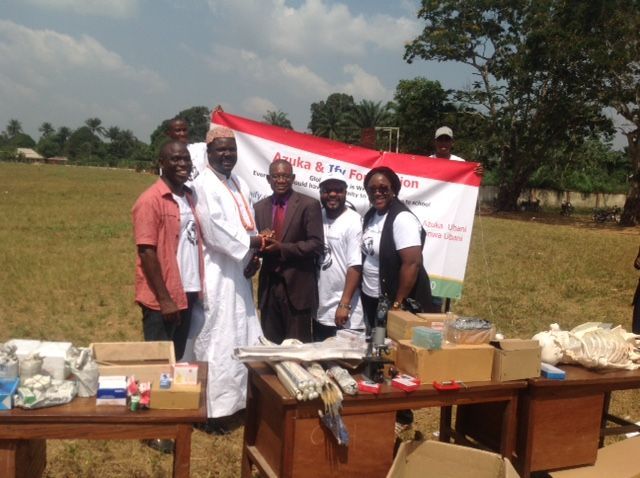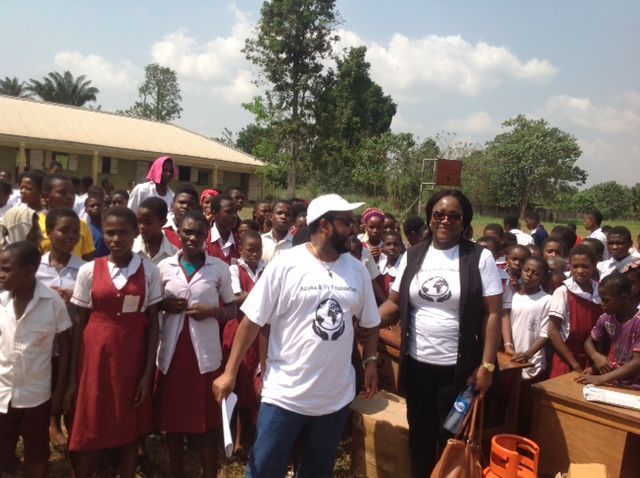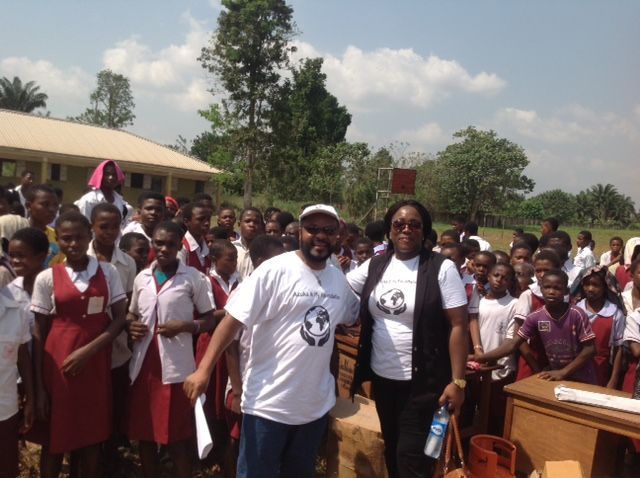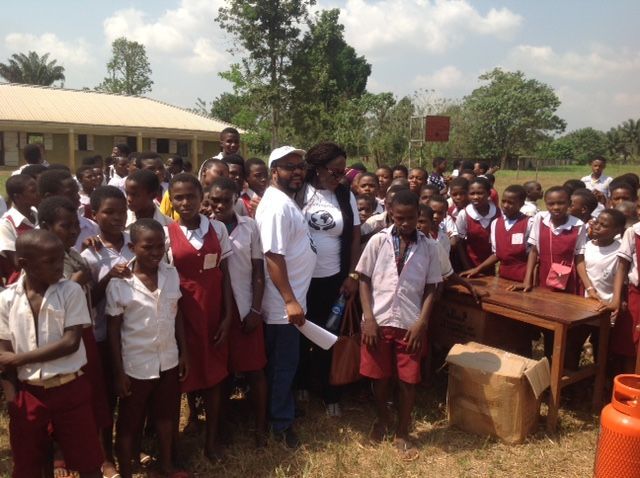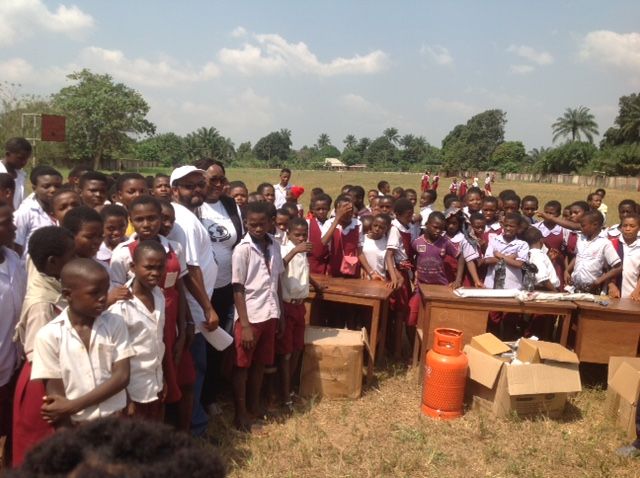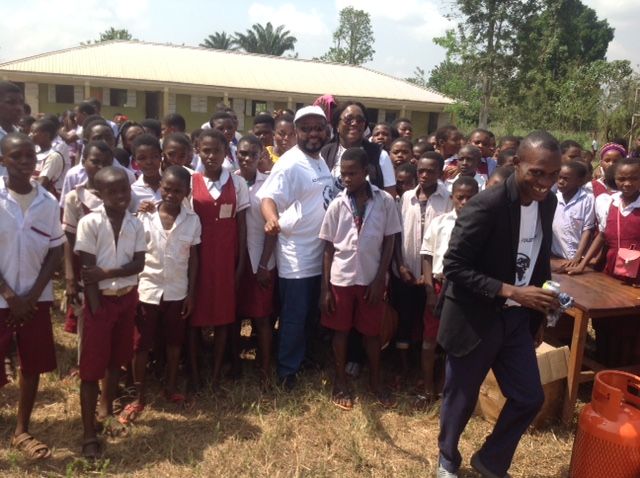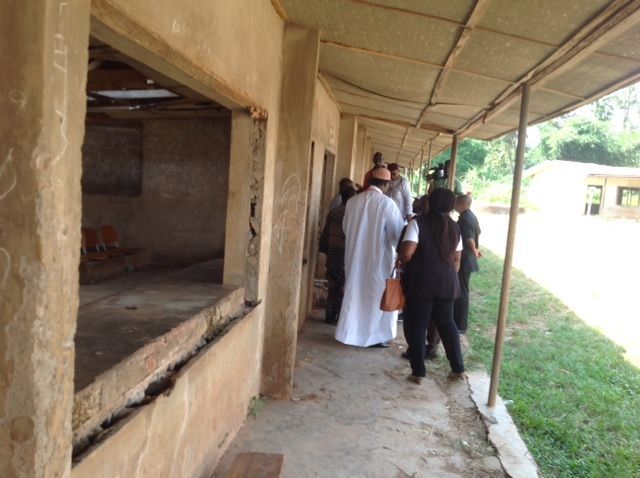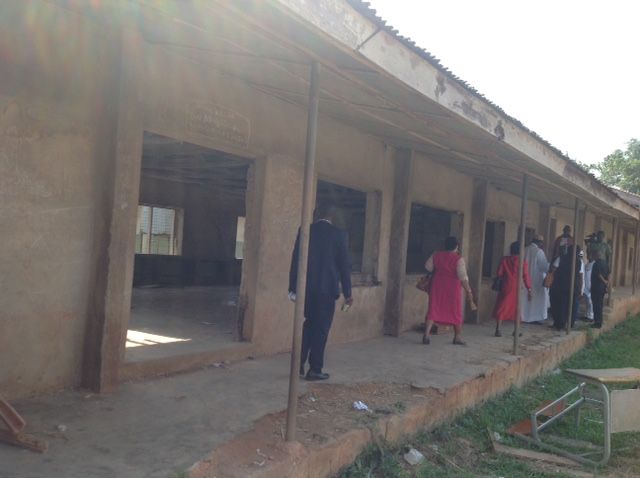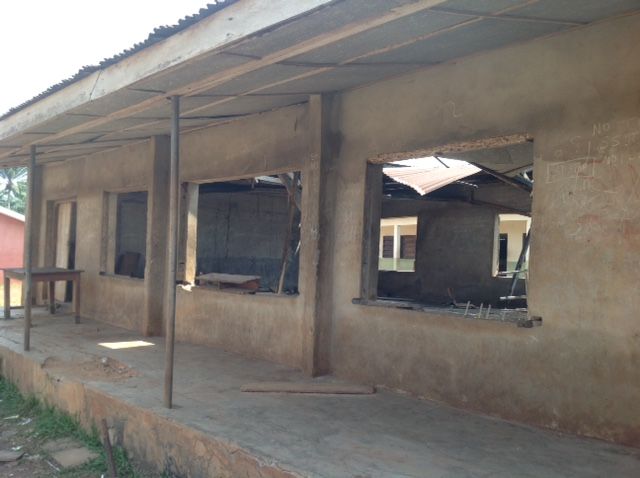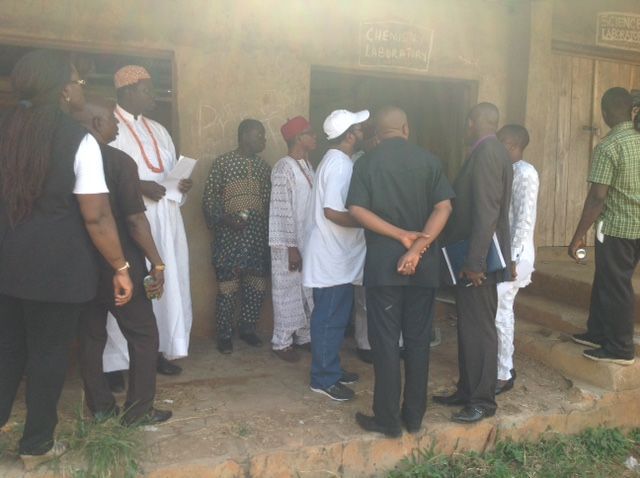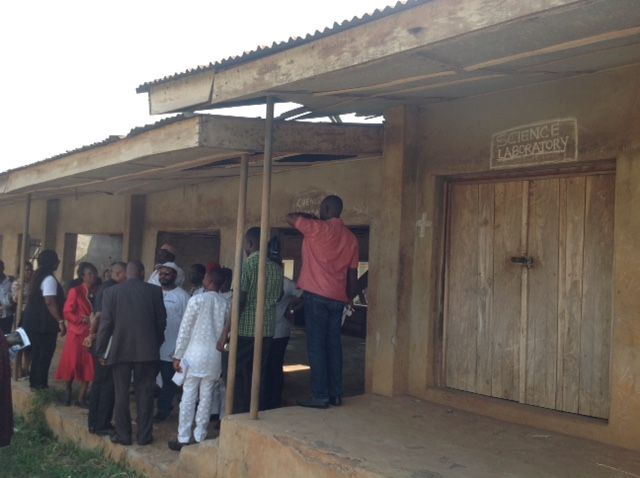EDUCATION
"Every Individual Deserves a Basic Level of Education"
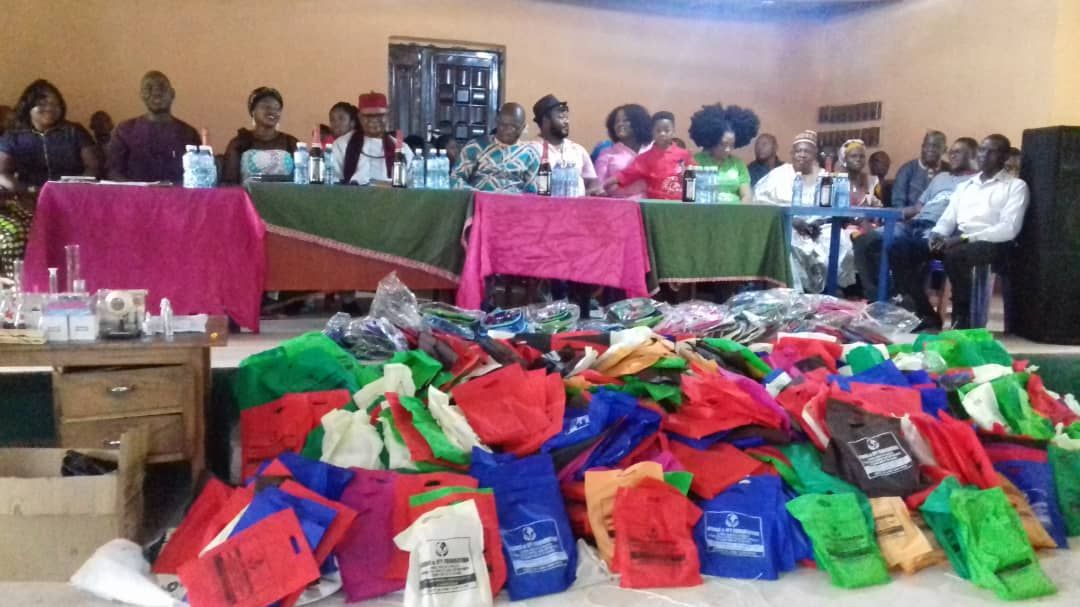
Literacy has been identified as an important instrument through which any community can attain its development in different areas. In line with the above vision, Azuka and Ify Foundation is committed to making sure that every child has the opportunity to learn and go to school, in the same vein bringing to halt the increasing rate of illiteracy in Nigeria come 2020.
We’ve perceived that illiteracy has been ravaging a lot of communities in Nigeria economically, politically socially, morally and otherwise, particularly the rural communities. It is quit devastating that in this modern and technological era, out of a population of 250 million Nigeria over 65 million people are illiterates. These are country men, woman, boys & girls they’re supposed to transform their various communities for better, when put in percentage it translates that more than 75% of these uneducated ones are from the rural communities and out of this 75%, men constitute 30%, women 20%, while children age (8-18 yrs) are 25%. Thus, ensuring that this crack is sealed up for good, we therefore decided to carry out our own study in order to ascertain the major factors responsible for illiteracy in various communities in Nigeria and also finding lasting solutions that’ll help to nip the illiteracy problem to the bud.
From our findings we were able to discover the following things “that”
- Lack of finance has affected the education of many in different communities, looking at a situation where some parent/guardian can no longer afford for their children /ward school fees, enrollment of promotion examinations and other school levies. This has resulted in a lot of school dropouts by and large they attributed it to lack of finance as a tool responsible for illiteracy among their people.
- Out of 100 people in rural communities 40 have a lukewarm attitude towards school/western education. Thus, they do not have interest in going to school or sending their children /ward to school. On the other hand, a larger percentage of them have no clear perception of what education can offer them. Some prefer to learn trade or do farming on the grounds that lots of graduates are roaming the streets with certificates looking for jobs.
- Clandestine activities in tertiary, secondary even up to primary schools has led to a change of views from lots of people in these rural communities. 5 out of 20 people perceived education as a means of learning evil vices and becoming corrupt in life which they say has eaten deep into the fabrics of the community. As a result, they have lost interest in sending their children/ward to school.
- Most of these rural communities, the male child is expected to shoulder the responsibility of caring for their parents. In other words, the male child re expected to carter for their families early in life. Since most of the parent have not been to school themselves, and have seen those in the trades becoming wealthy, they tend to encourage their children to learn trading so that they can become financially stable and independent early in life which the long years of education cannot provide (according to their own perception).
- Government failed policy in these rural communities has led to progressive degradation of education over the years. 20 out of 50 people have no faith in education. A situation where the government promised to give free education at all levels turned out to become a wide dream (hallucination) or due to these unfulfilled promises they would rather learn trade than go to school.
- Lack of qualified teaching personnel, infrastructure, and adequate facilities in both public and private schools. Most the schools in these rural communities lag behind in terms of qualified teachers and teaching facilities to affect quality learning situation. As a result of this, the majority of school children/adolescents cannot read and write correctly.
Solutions to Eradicating Illiteracy in the Concerned Rural Communities
After the critical examination of our findings on the causes of illiteracy among the sampled communities. The following strategies are recommended as possible solutions to eradicating illiteracy.
- Parents/guardians who cannot afford to train their children/ward in school will be assisted financially. To this effect 100 children aged (6-22) were purposely selected for the award of scholarship from primary to tertiary level. To affect this, we are looking at a budget of #5milion annually to offset their educational bills.
- A complementary approach will be set up to provide funds that will cater for those who cannot for their enrollment entrance/promotion examinations. According to our present statistics 1500 students will require our financial assistance annually. To actualize this, it requires an estimate of #7milion per annum.
- To change the lukewarm attitude of those in the rural communities towards education. We are intending to use social mobilization as in form of public enlightenment, to transmit the values of education to them. This requires a cost of #5milion to print fliers, make billboards, pay the media to disseminate the information, organizing town hall meeting as a medium of sensitizing them on the importance of education to them and their communities.
- We’ve also planned to organizing seminars, symposiums, and programs in regular intervals at different levels of school to create awareness to them on the dangers of cultism and other social vices that can truncate their educational career. To affect this, it will cost us up to #12milion.
- We’ve laid down measures to setting adult illiteracy school through liaising with public/private school, churches, and other establishments in these rural communities to carter for those who were not opportune to acquire formal education in their early life due to finance, belief, culture, or other related causes. To ensure successful execution of this project, it will take a budget of #20milion.
- Modalities will be employed to making sure that government whether to their educational policy by calling the attention of government at all levels to action effectively implement their educational policy, through media publication, visiting the government officials to remind them of their manifest towards education. This will cost us #2milion to affect it.
- Measures will be taken to ensure effective learning in this rural communities both public/private schools to upgrade their teaching facilities with teaching board, computers, writing materials and other equipment that will aid their learning and also setup training programs called on-the-job-training to enhance the teachers teaching skills from our collated data in this rural communities schools, 15 schools were selected including public & private school for upgrading. For us to realize this successfully we’re looking at a budget of #20milion.
Conclusion
It’s worthy to note that if 65% of these our measures stated above are effectively implemented, it will no doubt go a long way in reducing poverty, crime, child abuse, human trafficking, and other social vices and as we contribute meaningfully to economic & political and democratic growth of the communities and the society at large.



